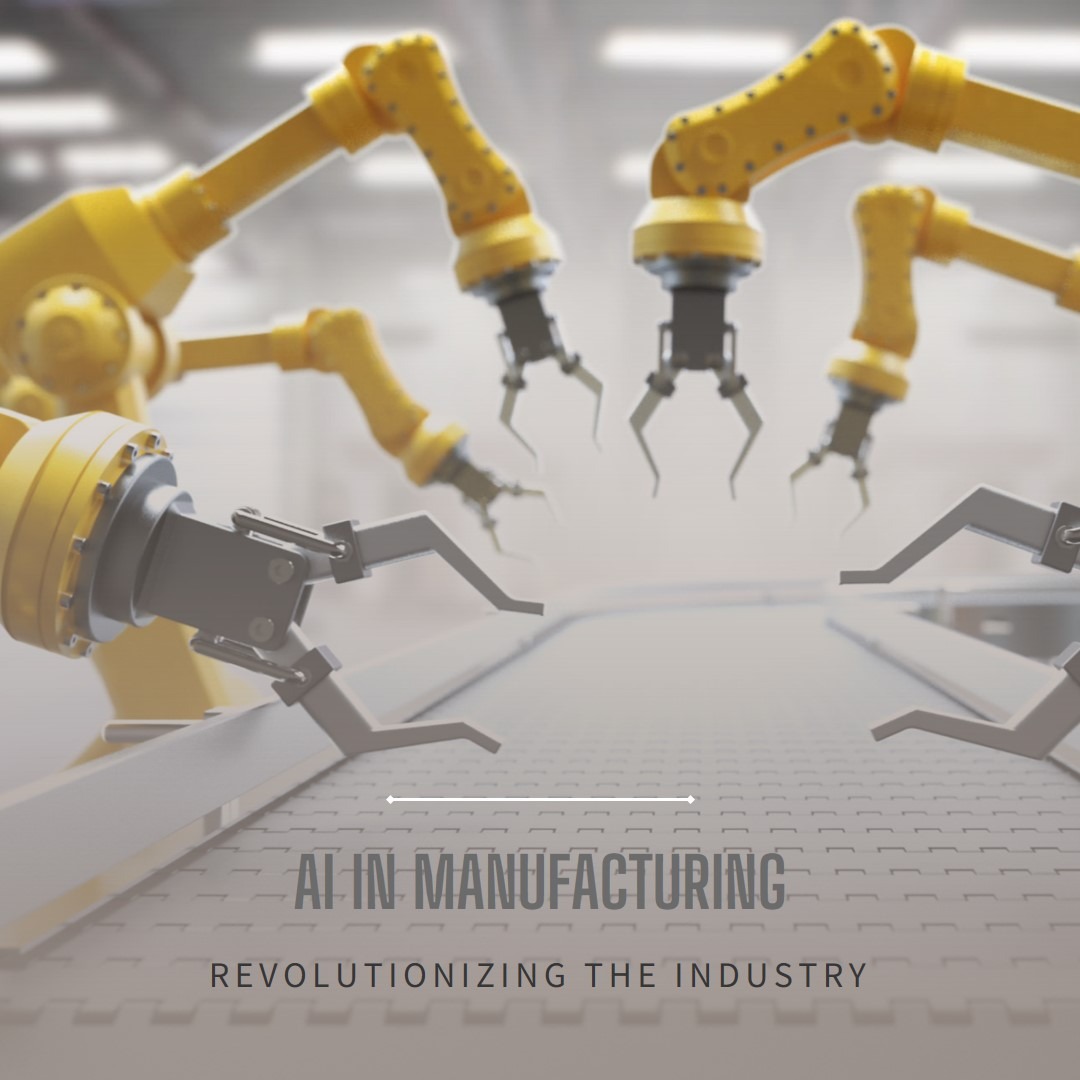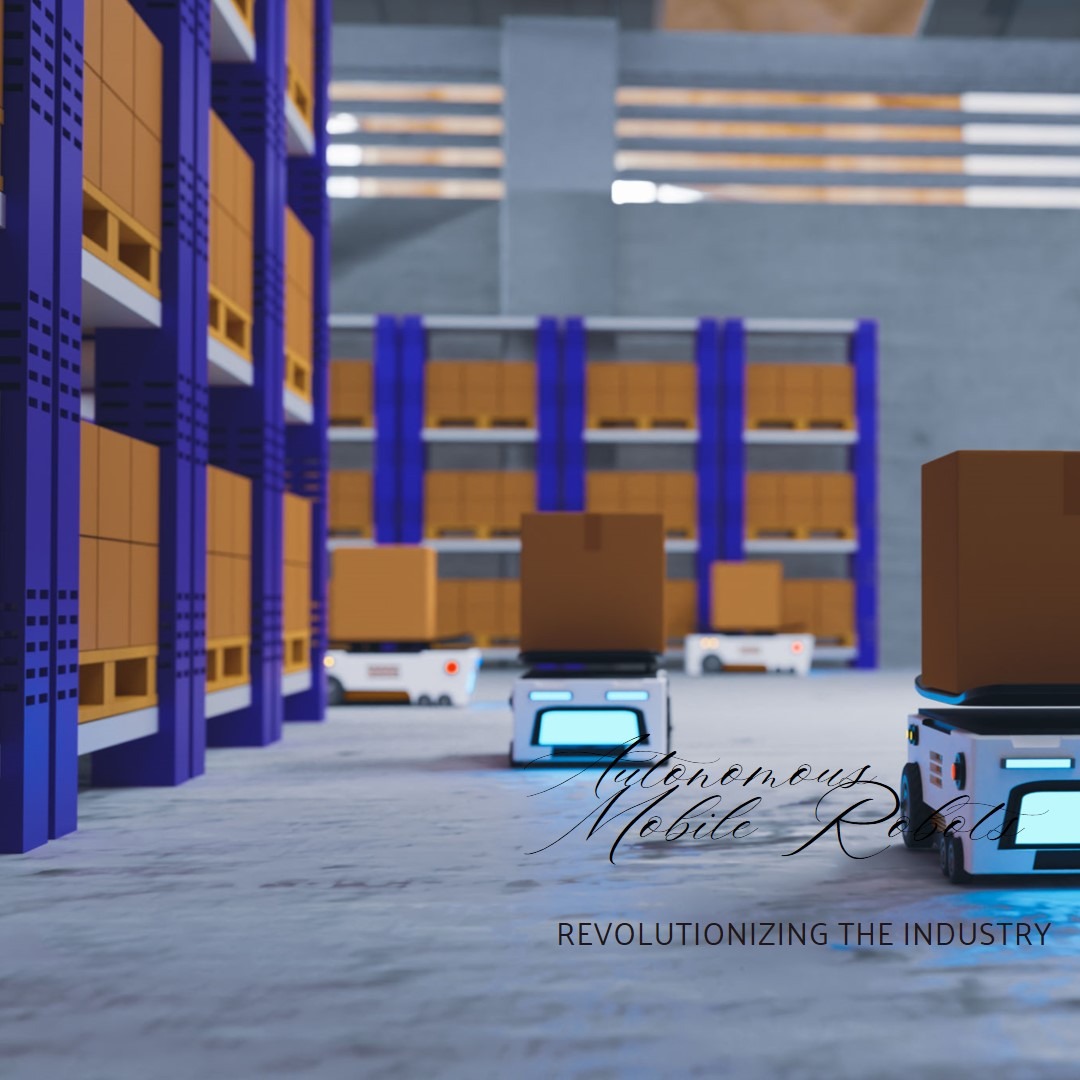Artificial Intelligence (AI) has emerged as a transformative force in various industries, and manufacturing is no exception. With its ability to analyze vast amounts of data, learn patterns, and make intelligent decisions, AI has revolutionized traditional manufacturing processes. In this article, we will explore the role of artificial intelligence in manufacturing, its applications, and the benefits it brings to the industry.

1. Introduction
The manufacturing sector is undergoing a significant transformation due to advancements in AI technologies. Traditional manufacturing processes often involve complex operations, lengthy production cycles, and potential human errors. However, with the integration of artificial intelligence, manufacturers can streamline their operations, optimize efficiency, and improve overall productivity.
2. The Role of Artificial Intelligence in Manufacturing
Streamlining Processes and Automation
One of the key contributions of AI in manufacturing is process optimization and automation. AI-powered systems can analyze production data in real-time, identify inefficiencies, and suggest improvements. This enables manufacturers to minimize downtime, reduce waste, and enhance operational performance.
Predictive Maintenance and Fault Detection
AI algorithms can analyze sensor data and machine parameters to predict equipment failures before they occur. By implementing predictive maintenance techniques, manufacturers can avoid costly unplanned downtime, optimize maintenance schedules, and increase the lifespan of their machinery.
Quality Control and Inspection
AI-based image recognition systems have revolutionized quality control and inspection processes in manufacturing. These systems can quickly and accurately identify defects, anomalies, and variations in products, ensuring that only high-quality items reach the market. This leads to improved customer satisfaction and reduces the risk of product recalls.
3. Robotics and AI in Manufacturing
Collaborative Robots (Cobots)
Collaborative robots, or cobots, are designed to work alongside human workers in manufacturing environments. These robots are equipped with AI capabilities that enable them to perform repetitive tasks, handle heavy loads, and enhance worker safety. Cobots can increase production efficiency, allowing human workers to focus on more complex and creative tasks.
Autonomous Mobile Robots (AMRs)
Autonomous Mobile Robots (AMRs) are another area where AI is making a significant impact in manufacturing. These robots can navigate autonomously within a factory environment, transporting materials, tools, and finished products. By leveraging AI algorithms, AMRs can optimize their routes, avoid obstacles, and adapt to changing circumstances in real-time.

Machine Learning in Robotics
Machine learning plays a crucial role in advancing robotic capabilities in manufacturing. By continuously analyzing sensor data, robots can learn and improve their performance over time. Machine learning algorithms enable robots to adapt to new tasks, make intelligent decisions, and even collaborate with human workers effectively.
4. AI-Driven Supply Chain Management
Demand Forecasting
AI algorithms can analyze historical data, market trends, and external factors to provide accurate demand forecasts. This helps manufacturers optimize their production planning, reduce inventory costs, and ensure timely delivery of products.
Inventory Management
Efficient inventory management is crucial for manufacturers to avoid stockouts or excessive stock levels. AI-powered inventory management systems can optimize inventory levels, automate replenishment, and minimize holding costs, leading to better cash flow and reduced waste.
Logistics Optimization
AI technologies enable manufacturers to optimize their logistics operations. By analyzing real-time data on transportation routes, traffic conditions, and delivery schedules, AI algorithms can help streamline supply chain processes, minimize delivery delays, and reduce transportation costs.
5. AI in Product Design and Development
Generative Design
Generative design, enabled by AI, revolutionizes the product design process. By inputting design constraints and desired outcomes, AI algorithms can explore countless design options and generate innovative solutions. This leads to more efficient and lightweight designs that optimize material usage and manufacturing processes.
Simulation and Virtual Prototyping
AI-powered simulations and virtual prototyping allow manufacturers to test and validate product designs virtually. This reduces the need for physical prototypes, saves time and costs, and enables early identification of design flaws. Manufacturers can iterate and refine their designs rapidly, improving time-to-market.
Design Optimization
AI algorithms can optimize product designs based on specific performance criteria. By analyzing data from simulations, real-world testing, and customer feedback, AI can suggest design modifications that enhance product performance, reliability, and user experience.
6. Enhancing Worker Safety and Efficiency

AI-Assisted Workflows
AI technologies can assist workers by automating routine tasks, providing real-time guidance, and delivering valuable insights. By offloading mundane and repetitive activities to AI systems, workers can focus on more complex and value-added tasks, improving their productivity and job satisfaction.
Augmented Reality (AR) and Virtual Reality (VR)
Augmented Reality (AR) and Virtual Reality (VR) technologies enhance worker training, maintenance, and troubleshooting processes. By overlaying digital information onto the physical environment, workers can receive step-by-step instructions, visualize complex processes, and detect potential issues, leading to increased efficiency and reduced errors.
Cognitive Automation
Cognitive automation refers to AI systems that can perform cognitive tasks, such as understanding and responding to natural language or analyzing unstructured data. In manufacturing, cognitive automation can assist with tasks like document processing, quality control, and data analysis, accelerating decision-making processes and reducing human errors.
7. Overcoming Challenges and Concerns
Data Security and Privacy
As AI relies on large amounts of data, manufacturers must ensure robust data security and privacy measures. Protecting sensitive intellectual property, trade secrets, and customer information is crucial to maintain trust and prevent unauthorized access or data breaches.
Workforce Transformation
The integration of AI in manufacturing may require a workforce transformation. While AI systems automate certain tasks, they also create new roles that require different skills. Manufacturers should invest in training and upskilling programs to enable their workforce to adapt to the changing requirements of AI-driven environments.
Ethical Considerations
AI applications in manufacturing raise ethical concerns, such as job displacement and potential biases in decision-making algorithms. Manufacturers need to address these concerns by ensuring transparency, accountability, and fairness in the design, implementation, and use of AI technologies.
8. Conclusion
Artificial Intelligence has become a game-changer in the manufacturing industry. Its applications, ranging from process automation and quality control to supply chain management and product design, have transformed traditional manufacturing practices. As AI continues to evolve, manufacturers can expect increased efficiency, improved product quality, enhanced worker safety, and a competitive edge in the global market.
9. FAQs
1. How does artificial intelligence improve manufacturing processes?
AI improves manufacturing processes by streamlining operations, automating tasks, enabling predictive maintenance, enhancing quality control, and optimizing supply chain management.
2. What is the role of AI in robotics for manufacturing?
AI enables collaborative robots (cobots) to work alongside humans, autonomous mobile robots (AMRs) to navigate factory environments, and machine learning to improve robotic capabilities.
3. How does AI benefit supply chain management in manufacturing?
AI benefits supply chain management by providing accurate demand forecasts, optimizing inventory levels, and optimizing logistics operations for timely and cost-effective deliveries.
4. How does AI contribute to product design and development in manufacturing?
AI contributes to product design and development by enabling generative design, virtual prototyping, and design optimization, leading to innovative, efficient, and reliable products.
5. What are some challenges in implementing AI in manufacturing?
Challenges include data security and privacy, workforce transformation, and ethical considerations regarding job displacement and algorithmic biases. Manufacturers must address these challenges proactively.
This article provides an overview of how artificial intelligence is transforming the manufacturing industry. From streamlining processes and automation to robotics, supply chain management, product design, and worker safety, AI is revolutionizing traditional manufacturing practices. While challenges and concerns exist, the benefits of AI in manufacturing are significant, paving the way for increased productivity, efficiency, and competitiveness in the global market.